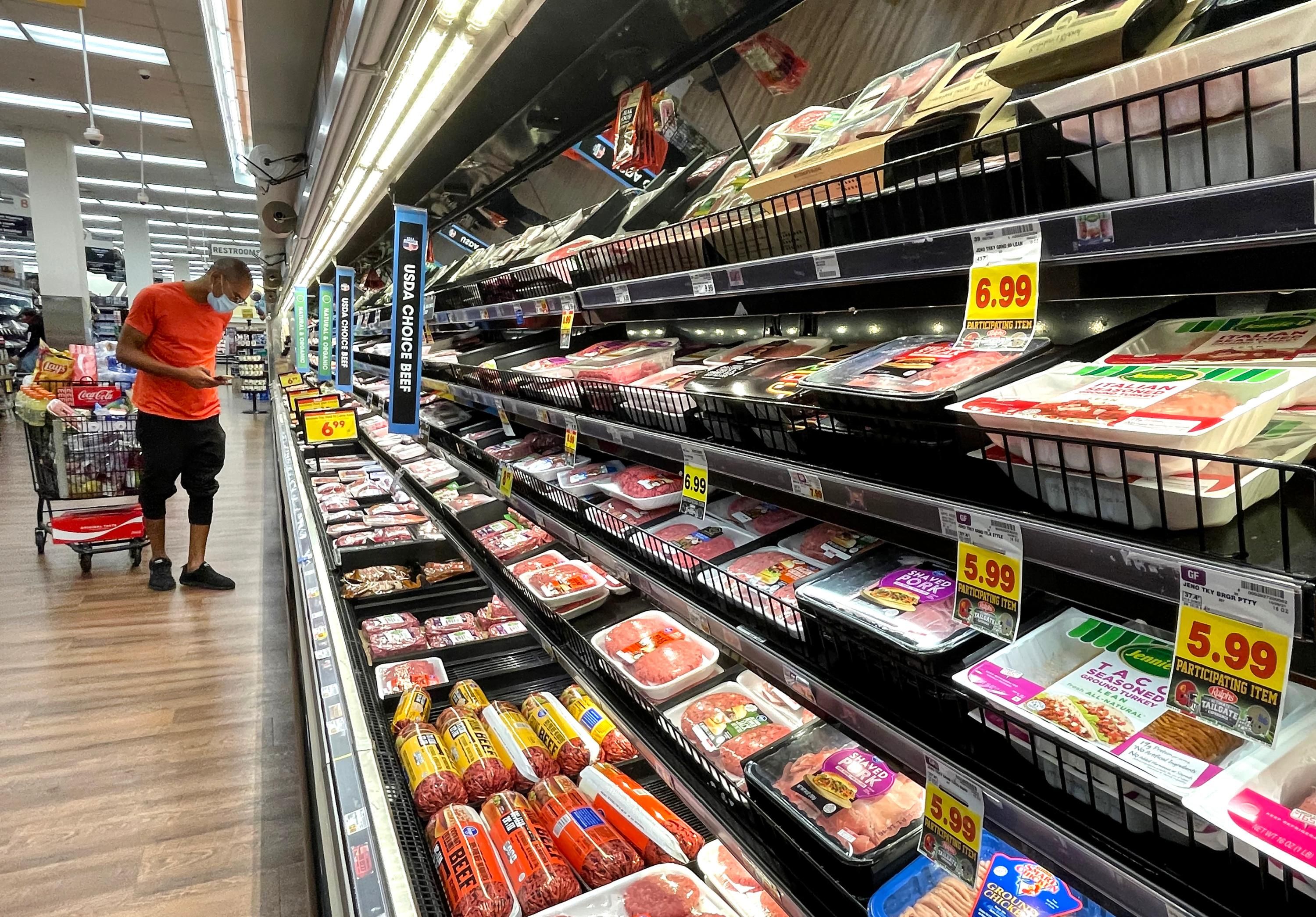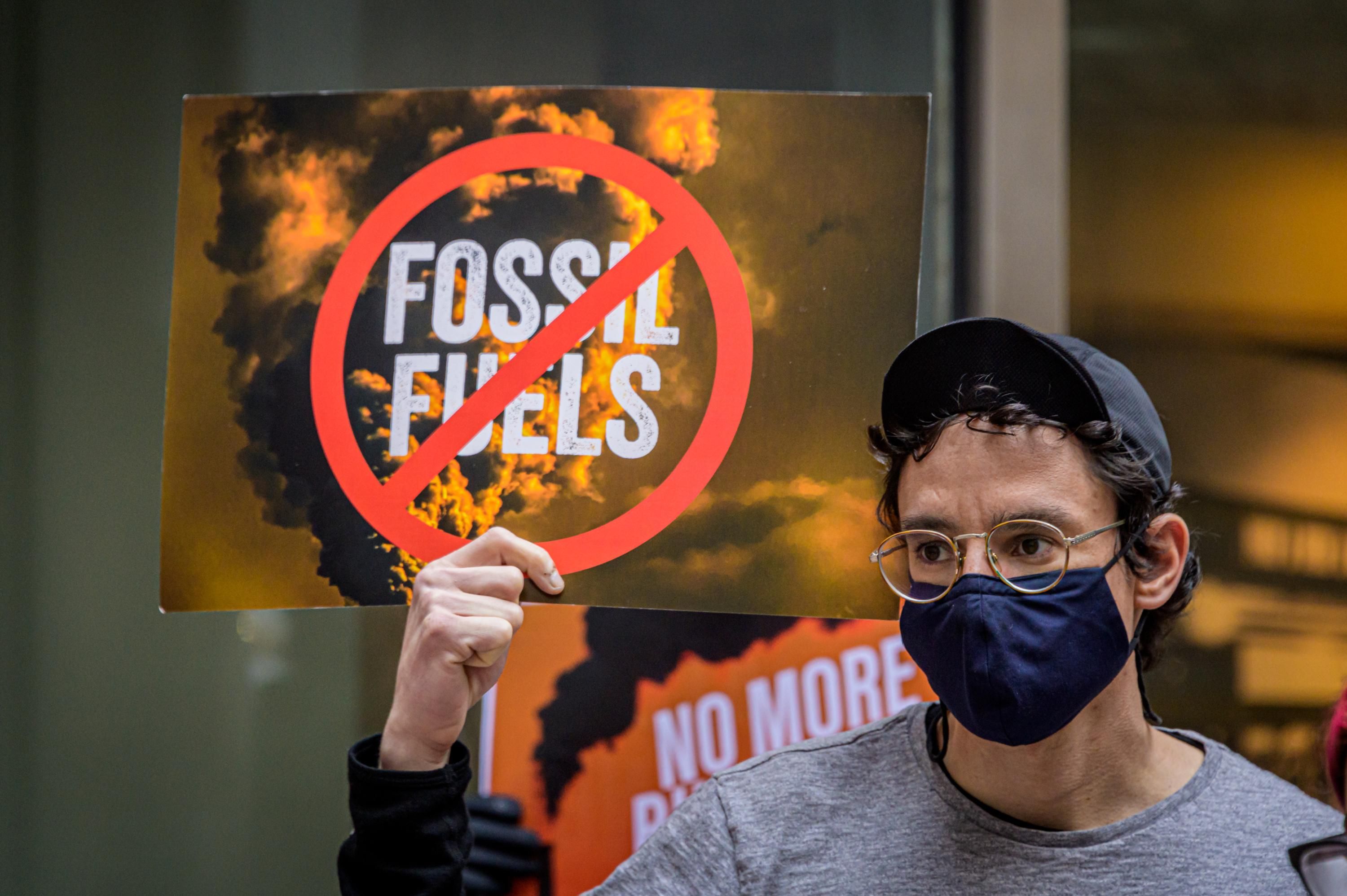Wagging the dog? America and the UK respond to the crisis in Ukraine
Likely the best way to understand the reaction of the U.S., UK and other English speaking countries to the latest ‘crisis’ in the Ukraine is that there is, as always, plenty of money to be made out of it.

Although it existed before and had a somewhat different meaning, the term ‘wag the dog’ to describe the use of or threat of the use of military force in other countries to distract from domestic troubles was popularized as part of the discourse around politics, especially in the United States, in the late summer of 1998.
Within days of the release of the film version of a popular book by this name that portrayed a U.S. president threatening a war with Albania to distract form a sex scandal at home, it was reported that the then real president, Bill Clinton, had had an affair with an 21 year old intern in the White House and had lied to investigators about it.
Just 3 days after Clinton’s taped testimony before a grand jury, the then president seemed to pull a real world version of what happened in the book and the film when he ordered strikes against targets in Afghanistan and Sudan that he claimed would punish Osama Bin Laden and his support network for attacks on U.S. embassies in East Africa earlier that month.
The strike on Sudan destroyed the Al Shifa pharmaceutical plant, which the U.S. government said had financial ties to the Al Qaeda leader and was producing chemical weapons. It turned out that the plant mostly produced antibiotics, had no Bin Laden connection and that innocent lives would be lost as a result of the bombing beyond the 12 who were killed when the facility was leveled, a real world consequence of ‘wagging the dog’ that wasn’t contemplated in the fictional versions that preceded it.
But Clinton wasn’t done with lying and using force in other countries to distract from his domestic troubles. Just prior to the start of impeachment proceedings, he ordered the bombing of various sites in Iraq that his administration claimed were involved in the manufacture of weapons of mass destruction. The next president, George W. Bush would use this same pretext to illegally invade that country, where no WMD were found.
As if to demonstrate his cynicism, Clinton called off the strikes as soon as the impeachment vote had taken place.
One major difference between the Clintonian ‘wagging of the dog’ and what seems lke a current version involving the the leaders of the UK and U.S., who, along with allies like Canada have created a panic about Russian saber rattling in regards to Ukraine, is the relative danger represented by the possible reactions of the countries targeted then, who couldn’t retaliate, and the much more dangerous brinkmanship that the world is watching as these NATO allies engage in a war of words with the Russian Federation. In economic terms the country may be a shadow of its former self but it still has the world’s largest nuclear arsenal. Although President Biden has ample reason for a ‘rally around the flag’ moment considering his domestic failures and low numbers in terms of polling, of the two leaders, the one with the most to gain by creating the illusion of competent crisis leadership is surely Boris Johnson, who has been continuously embarrassed in recent weeks by parties held at his residence and workplace during the Covid 19 crisis that were never supposed to have happened under the rules put in place by his own government.
Johnson, or ‘Bojo’ as he is often called with a mixture of affection and derision by supporters and foes alike, has long cultivated an image as something of a lovable rogue. The former London mayor never really came across as a rightwing populist, a role fulfilled by UKIP leader Nigel Farage prior to the political opportunity offered by the surprising result of the Brexit referendum in 2016 that would take the country out of the European Union and make the country even more reliant on its ‘special relationship’ with the United States.
The racheting up of tensions by these two powers has provoked worried responses and diplomatic overtures from allies France and Germany, who have their own political and economic reasons to end the war of words.
It was reported on Tuesday, that the Russian Federation would be removing some troops from the border in a move that at least temporarily de-escalated tensions. As we might expect, despite some skepticism on the part of some in Ukraine like its Defense Minister, Dmytro Kuleba and Boris Johnson who accused the Russian government of sending “mixed signals”, both sides declared victory.
For its part, Russia’s government wants assurances that Ukraine, whose history is entwined, often tragically, with its own, and which has a large Russian speaking minority in two administrative regions in the country’s east, which they collectively call Donbas and which has been the site of a low level insurgency since the Spring of 2014, will remain neutral and not become a NATO member or join the EU.
Unlike many commentators on the right (and some who have the nerve to call themselves ‘leftists’ or ‘anti-imperialists’) who seem to admire President Putin’s populist nationalist style, I’ve never been comfortable making excuses for him and the United Russia Party that is his main basis of support. Besides brutal policies attacking already vulnerable LGBTQ+ communities in the Russian Federation up until the present day, shortly after former President Clinton launched his missiles, Putin’s government began committing war crimes in Chechnya that that country has yet to recover from.
It’s interesting that the right of Chechens to self determination was not considered an issue at the turn of the century but these same rights for Georgia and Ukraine have been widely defended in the Western press in the years since.
It’s also true that war games in Belarus and in the Azov and Black Seas are provocative, but no more so than those NATO routinely holds on its borders are from the Kremlin’s point of view. Militarism is always inexcusable regardless of the country or countries engaged in it, more so when it’s used as a distraction from domestic problems.
Rather than acting as the unbiased watchdogs they portray themselves as, the major English speaking periodicals and other media like the BBC and CNN have only stoked the flames of conflict making claims, usually based on ‘anonymous official sources’ that an invasion was imminent, with some even claiming that the Russian president had told his forces to be ready for war by Wednesday, February 16th.
Despite this, on Thursday it was reported the U.S. president still fears an invasion could occur over “the next several days” and Russia expelled the second highest ranking U.S. diplomat in the country.
Likely the best way to understand the reaction of the U.S., UK and other English speaking countries to the latest ‘crisis’ in the Ukraine is that there is, as always, plenty of money to be made out of it, with multiple countries promising and sending arms to Ukraine, all in the hope of ensuring peace. On Tuesday, Joe Biden promised that no Americans will have to fight in Ukraine, nor does it seem likely that the UK will send combat troops there. Instead they and other NATO countries have promised arms, music to the ears of purveyors of death like B&E Systems, General Dynamics and Raytheon.
This is one of the things about wagging the dog, barring a cataclysmic conflict, a real if unlikely possibility in this case as opposed to most others, arms manufacturers and the politicians and think tanks they support always win.









